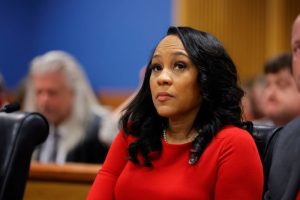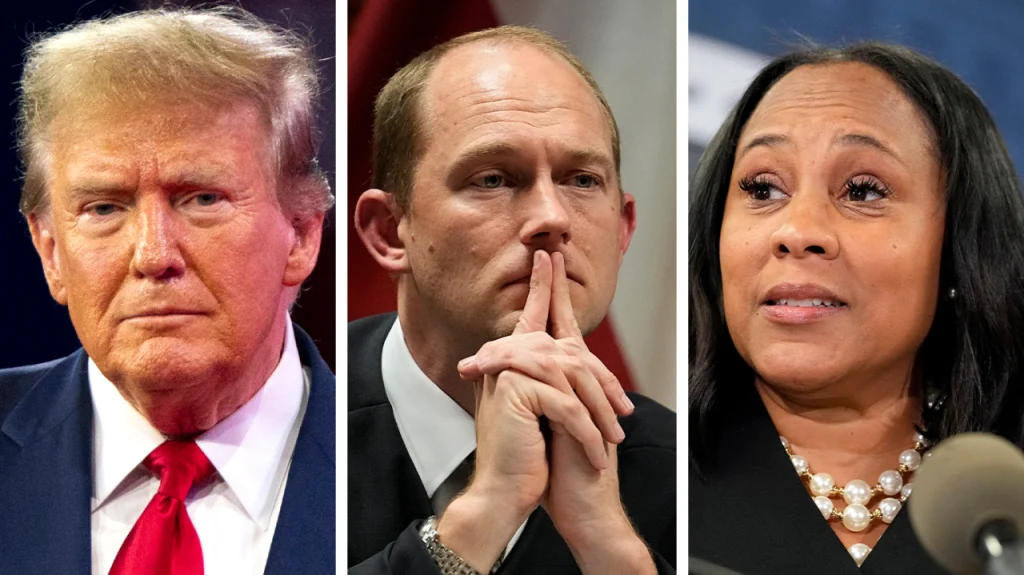Judge Scott McAfee heard arguments Friday to determine whether Fulton County District Attorney Fani Willis (D) and special prosecutor Nathan Wade should be kicked off the sweeping racketeering case because of their once-romantic relationship.
McAfee’s decision could hinge on how he weighs the evidence presented across three days of hearings. The judge previously said the allegations against Willis and Wade “could result” in their disqualification if evidence shows an “actual conflict of interest or the appearance of one.”
“The entire outcome is pretty much contingent on what standard of disqualification he applies,” said Anthony Michael Kreis, a law professor at Georgia State University who has closely followed the case.
“[The defense] has come up quite short of proving or demonstrating that Fani Willis received a considerable kickback, or anything of that nature, from the prosecution, so if the standard is an actual conflict, I think they have a pretty uphill battle,” Kreis said. “But if the standard is an appearance of a conflict or an appearance of impropriety — I think it’s possible that the defense has muddied things up enough.”
The weeks-long detour in the Georgia election interference case originated with a January motion filed by defendant Michael Roman, a Trump 2020 campaign operative, who accused Willis of financially benefitting from her relationship with Wade via lavish vacations the prosecutors took together.
Throughout several hearings, Willis and Wade took to the witness stand to defend their integrity. They confirmed their romantic relationship but said it began in early 2022, before they parted ways in summer 2023.
Testimony from two associates of the prosecutors — an ex-friend of Willis and Wade’s former law partner — contradicted that timeline.
Robin Yeartie, who met Willis in college, testified that Willis and Wade “no doubt” began dating in 2019, after a judicial conference. She said she saw the pair “hugging” and “kissing” before Wade’s hiring.

The ex-law partner, Terrence Bradley, claimed in text messages with Roman attorney Ashleigh Merchant that the prosecutors began dating before Wade’s hire, too.
“Do you think it started before she hired him?” Merchant asked.
“Absolutely,” Bradley replied.
Bradley, who was also once Wade’s divorce attorney, initially attempted to assert attorney-client privilege, but the judge required him to testify in more detail about his knowledge of the relationship. When on the witness stand, he described his texts as “speculation.”
Trump attorney Steve Sadow urged the judge to view Bradley’s private communications as the truth, despite his walk back while testifying.
“Now, ‘absolutely’ is not a speculative word,” Sadow said. “That’s not speculation; that’s a definitive statement.”
Fulton County prosecutors described Bradley as a “disgruntled, vengeful speculator” and said Merchant’s texted question to the lawyer itself implied speculation.
The ex-Wade law partner’s inconsistencies draw into question his credibility – and the credibility of the defense’s motion, said Melissa Redmon, director of the University of Georgia’s Prosecutorial Justice Program.



